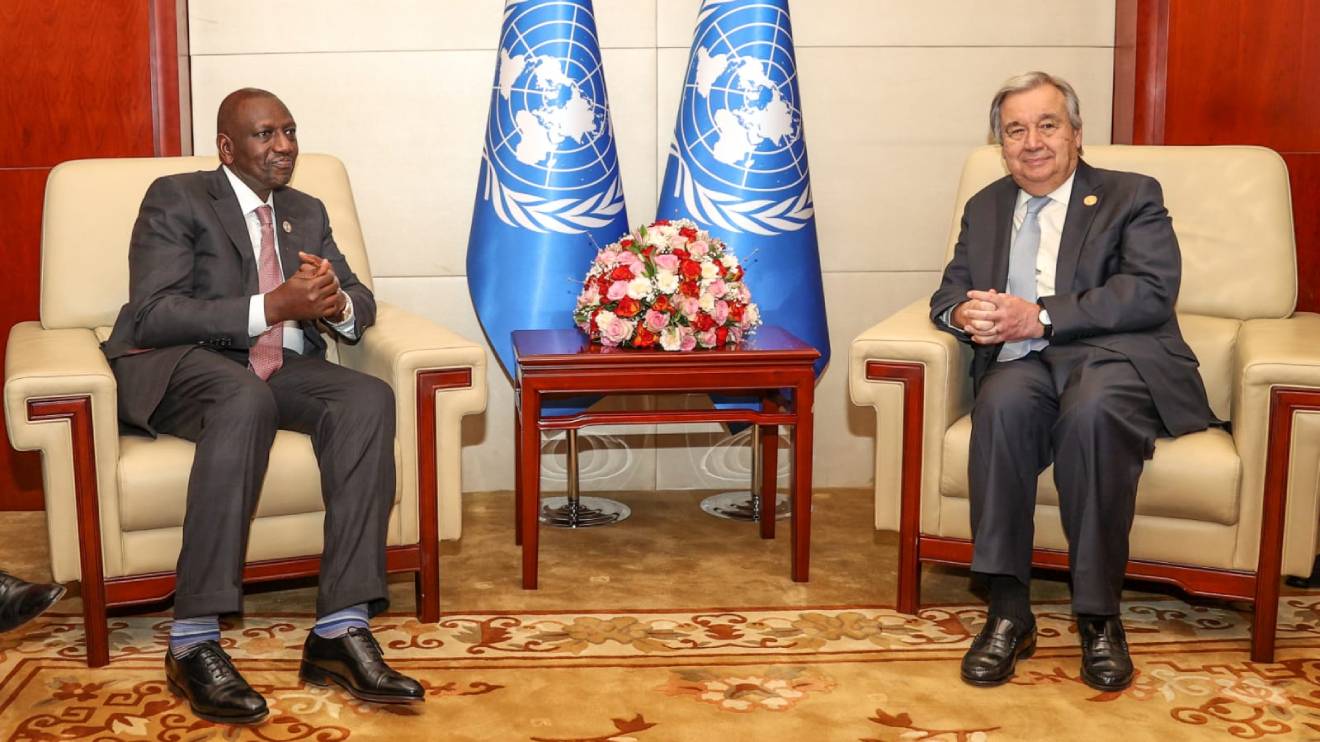News
UN to Probe Ruto’s Human Rights Record in Global Review

Kenya is bracing for a critical moment on the world stage. President William Ruto’s administration is set to face a tough human rights review by the United Nations starting May 1, 2025.
The assessment, to be held in Geneva, comes amid growing concerns from both local and international bodies about increasing rights violations under Ruto’s watch.
With scrutiny mounting and civil society raising the alarm, the UN Human Rights Council is preparing to probe Kenya’s human rights record with fresh eyes and urgent questions. Ruto’s government will have no place to hide from this global audit.
UNHRC Council to Review Kenya’s Human Rights Record Starting May
The United Nations Human Rights Council (UNHRC) is set to review Ruto’s human rights record during its Universal Periodic Review (UPR) session between April 28 and May 9 in Geneva, Switzerland. This will be Kenya’s fourth review following previous assessments in 2010, 2015, and 2020.
The review will be based on three main sources: a national report submitted by the Kenyan government, a compilation of UN reports, and submissions from civil society organizations and human rights defenders.
Attorney General Dorcas Oduor will lead Kenya’s delegation in defending the country’s record and outlining steps taken since the last review. But Kenya’s report won’t be the only voice in the room.
Independent watchdogs, UN treaty bodies, and civil rights organizations have submitted detailed accounts highlighting alleged state-sponsored abuses, police brutality, enforced disappearances, and the targeting of activists.
The Kenya Human Rights Commission (KHRC), one of the most vocal institutions, sent a comprehensive submission last October, urging the UN to investigate deeply and hold the Ruto administration accountable.
Ruto’s government has promised reforms. Yet critics argue that many of these promises remain unfulfilled, while intimidation of dissenters, extrajudicial killings, and silencing of human rights defenders have reportedly escalated.
During the session, the UNHRC Working Group—made up of 47 member states—will listen to all parties and provide recommendations. A final report, including specific improvement measures, will be published on May 7.
Civil Society Outcry Raises Pressure on Ruto’s Government
Civil society groups, both in Kenya and abroad, have accused President Ruto’s administration of ignoring human rights principles. Their concerns are not new—but the international community is now listening more closely.
The KHRC, in its 2024 submission to the UN, painted a grim picture. It raised alarms about arbitrary arrests during protests, the targeting of journalists, and the harassment of whistleblowers.
The organization also criticized the state’s failure to investigate past abuses, particularly during police crackdowns on opposition protests.
“President Ruto’s government has failed to uphold its constitutional and international obligations,” the KHRC letter stated. “Victims are left without justice. Perpetrators enjoy impunity.”
Other stakeholders echoed these concerns. Reports from regional organizations documented violations against environmental defenders opposing major state-backed infrastructure projects.
There were also accounts of discrimination against marginalized communities, including ethnic minorities and the LGBTQ+ population.
The climate of fear among activists has worsened. Many fear retaliation for speaking out. Human rights institutions are underfunded, overburdened, and in some cases, targeted themselves. Meanwhile, the government insists these claims are politically motivated attacks.
International observers are unconvinced. They argue that repeated patterns of state abuse, combined with the absence of accountability, point to systemic failures, not isolated incidents.
What This Means for Kenya and the Ruto Administration
This latest review of Ruto’s human rights record comes at a crucial time for Kenya. The country has positioned itself as a regional peacekeeper and development leader. But this spotlight from the UN could tarnish that image if findings confirm widespread violations.
If Kenya fails to convince the international community of its commitment to human rights, it could face diplomatic pressure, reduced donor confidence, and reputational damage. These reviews carry no direct penalties, but their political impact can be profound.
The government has a chance to present its side, highlight reforms, and pledge new commitments. But the world will be watching closely—not just for words, but for action.
Kenya’s civil society remains hopeful that international attention will force meaningful change. Whether the Ruto administration is ready to listen and reform, or continue on its current path, remains to be seen.
Kenya Insights allows guest blogging, if you want to be published on Kenya’s most authoritative and accurate blog, have an expose, news TIPS, story angles, human interest stories, drop us an email on [email protected] or via Telegram
-

 Grapevine2 weeks ago
Grapevine2 weeks agoRussian Man’s Secret Sex Recordings Ignite Fury as Questions Mount Over Consent and Easy Pick-Ups in Nairobi
-

 News1 week ago
News1 week agoTHE FIRM IN THE DOCK: How Kaplan and Stratton Became the Most Scrutinised Law Firm in Kenya
-

 Investigations1 week ago
Investigations1 week agoMulti-Million Dollar Fraud: Three Kenyans Face US Extradition in Massive Cybercrime Conspiracy
-

 Economy1 week ago
Economy1 week agoIran Demands Arrest, Prosecution Of Kenya’s Cup of Joe Director Director Over Sh2.6 Billion Tea Fraud
-

 Business1 week ago
Business1 week agoA Farm in Kenya’s Rift Valley Ignites a National Reckoning With Israeli Investment
-

 Africa2 weeks ago
Africa2 weeks agoFBI Investigates Congresswoman Ilhan Omar’s Husband’s Sh3.8 Billion Businesses in Kenya, Somalia and Dubai
-

 Grapevine4 days ago
Grapevine4 days agoA UN Director Based in Nairobi Was Deep in an Intimate Friendship With Epstein — He Even Sent Her a Sex Toy
-

 Politics2 weeks ago
Politics2 weeks agoSifuna, Babu Owino Are Uhuru’s Project, Orengo Is Opportunist, Inconsequential in Kenyan Politics, Miguna Says

















